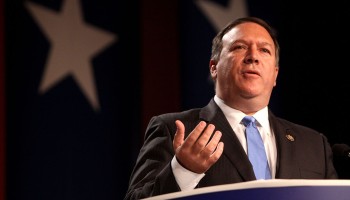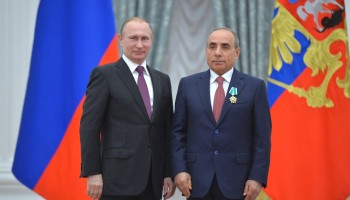Medvedev promised to clamp down on corruption when he began his presidential term in 2008, but the country is still perceived as the most corrupt large economy according to watchdog NGO Transparency International. Under the once and future President Putin, a former secret service agent, analysts are not expecting any gains in transparency.
--
In Kyrgyzstan, Prime Minister Babanov filed an asset declaration this week, but said he doesn’t own a private home or car in the country. Local journalists and civil society groups say he is one of the Central Asian country’s wealthiest men and owns a bank and a cement factory, but he says his only income is that from his job as prime minister: US$18,600. How can anyone who played a role in the privatizations that took place as the Soviet Union claim to not have any assets? Kyrgyzstan may be dealing with transitional justice, but in just about any court, it isn’t illegal to be rich, but it is illegal to lie.
Even more accusations have been made against former Ukrainian PM Yulia Tymoshenko. Deputy Prosecutor General Renat Kuzmin announced charges yesterday alleging that a firm controlled by Tymoshenko carried out a contract killing in 1996. Although several months ago it looked like legal loopholes would get Tymoshenko out of jail and into a hospital, this announcement renders her chances even slimmer. She denied Kuzmin’s allegations through her lawyer.
Kuzmin maintains that in order to formally implicate Tymoshenko, he needs to question her predecessor as PM, Pavlo Yazarenko, who is serving a nine year sentence in California for extortion and corruption. Kuzmin blamed US authorities for blocking attempts to get to Yazarenko for over one year.
--
The US Department of State reported that the world’s eight largest economies and many developed European countries are vulnerable to corruption and money laundering. A group of German anti-corruption activists have fired back by forming the Pirate Party, and support for their agenda, based solely on transparency, is growing.
The United States also placed itself on the list, but it has enacted measures trying to stem the tide of money laundering and tax evasion, especially through offshore tax havens. Starting this year, US citizens and permanent residents will have to make extensive disclosures about financial assets, even those held abroad, pursuant to the Foreign Account Tax Compliance Act (FATCA).





